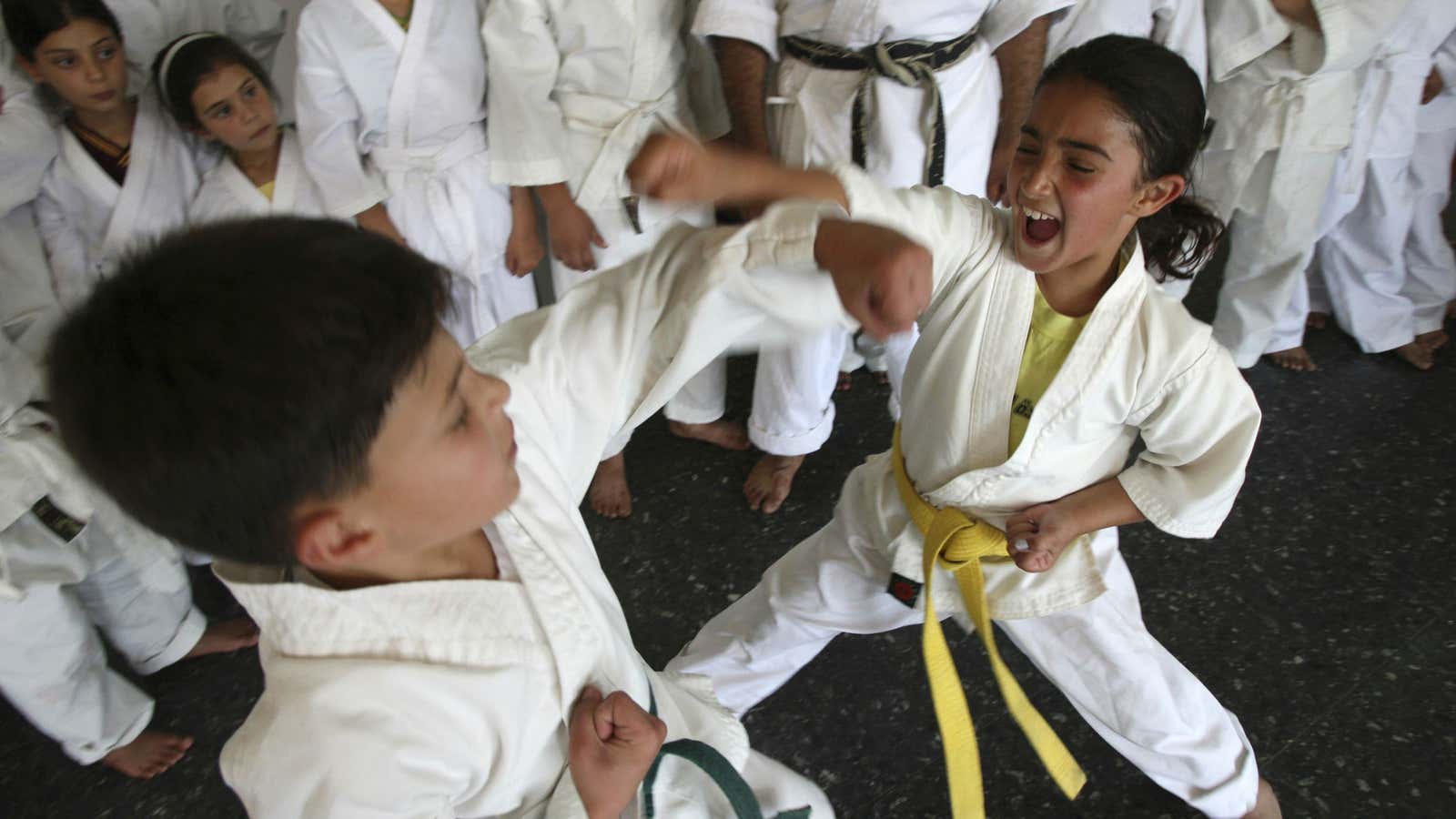Here’s a silver lining for parents of rule-breaking, defiant, disagreeable children: Such surly offspring could end up being a very good investment.
A recent study published in the journal Developmental Psychology looked at data on a cohort of 745 children in Luxembourg from the time they were about 12 years old in 1968 until 2008, when their average age was about 52. Researchers sought to connect the information collected on the children—including their socioeconomic background and questionnaires answered by both the children and their teachers—with their career outcomes four decades later.
The short version? Researchers from the University of Luxembourg, the University of Illinois at Urbana-Champaign, and The Free University of Berlin found—perhaps unsurprisingly—that occupational success was closely associated with IQ, the socioeconomic status of parents, and a metric of “studiousness” based on teacher assessments. (To define occupational success, researchers used an index that ranked occupations on prestige and socioeconomic status.)
But when it came to income levels, researchers found a slightly different pattern. After accounting for the impact of IQ-level and class background, researchers found that “rule-breaking and defiance of parental authority” was the best predictor of which students ended up making higher incomes. The writers called this a “surprising finding” and admitted there were reasons to be cautious about it. But they did float a few theories on why this might be the case. ”We might assume that students who scored high on this scale might earn a higher income because they are more willing to be more demanding during critical junctures such as when negotiating salaries or raises,” they wrote.
Another explanation, they said, might be that childhood troublemakers ”also have higher levels of willingness to stand up for their own interests and aims, a characteristic that leads to more favorable individual outcomes—in our case, income.”

The notion that well-behaved kids don’t always finish first over the long run is not unheard of. Previous studies have found the character trait of “agreeableness” is negatively correlated with income and earnings. “We also cannot rule out that individuals who are likely or willing to break rules get higher pay for unethical reasons,” the researchers wrote in the recently published paper.
Of course, parents of rule-following, obedient children shouldn’t necessarily despair. There are always limitations with such studies.
For instance, it’s possible that there’s some sort of variable that social scientists haven’t captured in their regression analysis of the data from Luxembourg. Or it could be that such findings only apply to to kids who reside in landlocked European duchies.
All the same, there’s something that rings true about this finding, which echoes the immortal Americanism oft-credited to legendary baseball manager Leo Durocher: ”Nice guys finish last.” But who knows, maybe Durocher traced his ancestry back to Luxembourg.
